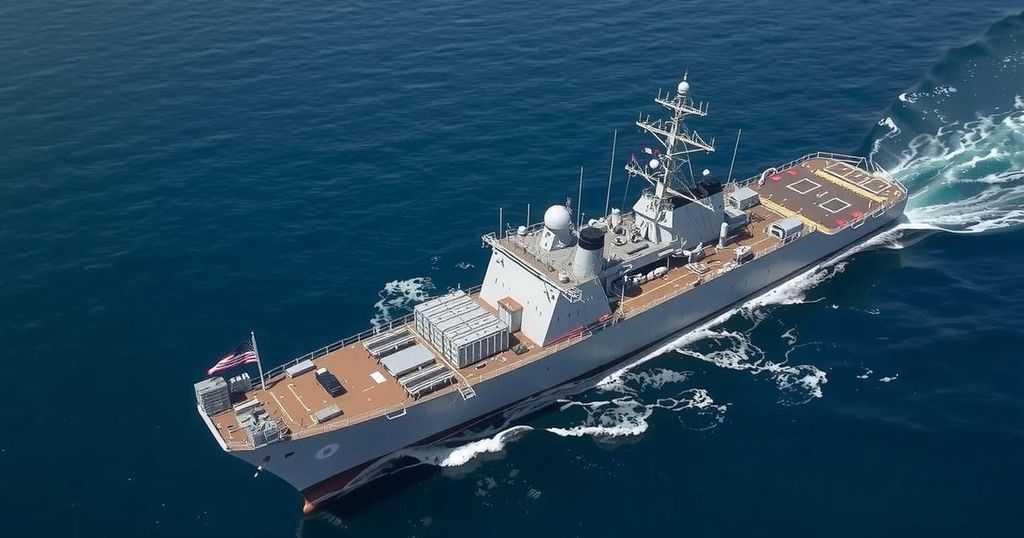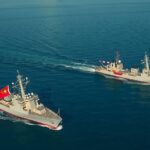Politics
ASIA, ASIAN, BEIJING, BRUNEI, CHINA, CLARENCE FERNANDEZ, CLEAN ENERGY, COAST GUARD, HIGH-LEVEL DIALOGUE, JOE CASH, LIU DEJUN, MALAYSIA, PERMANENT COURT OF ARBITRATION, PHILIPPINES, REUTERS, SOUTH CHINA SEA TENSIONS, TERRITORIAL DISPUTE, TERRITORIAL DISPUTES, THOMSON REUTERS, VIETNAM
Clara Montgomery
China Allows Philippines to Supply Beached Warship at Disputed Shoal
China has permitted the Philippines to send supplies to a warship beached at the Second Thomas Shoal. This decision, made by the Chinese coast guard, emphasizes diplomatic expectations from Beijing for the Philippines to engage collaboratively. The South China Sea remains a disputed area, with longstanding territorial claims exacerbating regional tensions.
On Friday, China authorized a Filipino civilian vessel to deliver supplies to a Philippine warship that is reportedly beached at the Second Thomas Shoal, according to a statement from the Chinese coast guard. Liu Dejun, a spokesperson for the agency, expressed the hope that the Philippines would adhere to its commitments and collaborate with China to manage the current maritime situation amicably. The South China Sea remains a contentious area, as China asserts extensive territorial claims that are contested by several neighboring nations, including Brunei, Indonesia, Malaysia, the Philippines, and Vietnam. A ruling by the Permanent Court of Arbitration in The Hague in 2016 determined that China’s expansive claims lack a legal foundation, a verdict that Beijing has consistently rejected.
The South China Sea is a critical maritime region that is subject to overlapping territorial claims from multiple nations, leading to heightened tensions. China claims almost the entirety of this area, enforcing its sovereignty against rival claims from Southeast Asian countries. The Philippine warship at the center of the current issue is a remnant of a long-standing territorial dispute, reflecting the ongoing geopolitical challenges in this region. Noteworthy is the 2016 Permanent Court of Arbitration ruling, which dismissed China’s claims as having no legal standing, an outcome that Beijing continues to contest. The permission granted to the Philippines to send supplies indicates a potential for negotiated engagements, albeit within a complex dispute framework. The diplomatic interactions involving these nations may serve as a barometer for future relations in a region fraught with both strategic and economic interests.
In summary, China’s recent authorization for a Filipino ship to supply a beached warship represents a significant diplomatic gesture amidst ongoing territorial conflicts in the South China Sea. The hope expressed by Chinese authorities for cooperation underlines the complexities of managing national interests while navigating regional disputes. A continued dialogue and adherence to international rulings will be crucial in shaping the future relations between China and the Philippines regarding the South China Sea.
Original Source: www.usnews.com







Post Comment